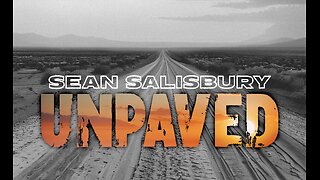Premium Only Content

Subversive Literature: A Comprehensive Exploration of Radical Texts and Their Knowledge
This essay examines a diverse collection of subversive texts, spanning centuries, that challenge authority, morality, and metaphysical norms. Organized chronologically, it analyzes their philosophical underpinnings and contributions to knowledge, revealing interconnected themes of rebellion, empowerment, and inquiry that reshape human understanding across political, esoteric, and ideological domains.
Top 21 Books on Forbidden Knowledge: A Historical Analysis of Subversive Texts Shaping Human Thought. Read the complete essay and view supporting resources at Real Free News and Substack
The Sworn Book of Honorius (13th Century): A medieval grimoire blending Christian mysticism with occult rituals for summoning angels and demons.
The Book of Abramelin (14th-15th Century): A grimoire detailing an 18-month ritual to contact a Holy Guardian Angel and control demons.
The Munich Manual of Demonic Magic (15th Century): A grimoire focusing on necromancy and demon summoning for power or harm.
Malleus Maleficarum (1486): A treatise codifying witch-hunting practices, promoting persecution in medieval Europe.
The Lesser Key of Solomon (Mid-17th Century): A grimoire listing rituals to summon 72 demons for knowledge or influence.
The Grimoire of Honorius (Late 17th Century): A grimoire using sacrilegious rituals to summon demons and cast curses.
The Grand Grimoire (18th Century): A grimoire offering rituals for summoning Lucifer and making demonic pacts.
The Black Pullet (18th Century): A grimoire detailing talismanic magic for wealth, love, or destruction.
The 120 Days of Sodom (1785): A novel exploring extreme nihilism and moral depravity through graphic violence.
The Infernal Dictionary (1818): A compendium cataloging demons and rituals for invocation and manipulation.
The Communist Manifesto (1848): A revolutionary call for proletarian uprising against capitalist oppression.
Das Kapital (1867): A treatise analyzing capitalism’s exploitative structures and advocating reform.
A Vindication of the Rights of Woman (1792): A treatise advocating women’s equality through education and autonomy.
What Is to Be Done? (1902): A political text outlining strategies for revolutionary organization in Russia.
The Protocols of the Elders of Zion (1903): A disputed text alleging a Jewish conspiracy to control global affairs.
The Book of the Law (1904): A Thelemic text promoting individual will and esoteric freedom.
Mein Kampf (1925): A manifesto outlining Hitler’s antisemitic and nationalist ideology.
The Satanic Bible (1969): A text codifying atheistic Satanism, emphasizing individualism and skepticism.
Rules for Radicals (1971): A manual providing tactics for grassroots activism and community empowerment.
The Turner Diaries (1978): A dystopian novel advocating white supremacist revolution and violence.
The Black Book of Communism (1997): A historical critique of communist regimes’ oppression and human cost.
#SubversiveLiterature #RebelliousThought #OccultKnowledge #PoliticalDefiance #PhilosophicalInquiry
-
 LIVE
LIVE
The HotSeat
1 hour agoChapter 32 Begins: Honoring Charlie Kirk’s Legacy & Jimmy Kimmel Gets Canceled
786 watching -
![[Ep 751] Jimmy Kimmel – You’re Fired! | Freedom of Speech is Not Freedom From Consequence](https://1a-1791.com/video/fww1/bd/s8/1/e/-/h/j/e-hjz.0kob-small-Ep-751-Jimmy-Kimmel-Youre-F.jpg) LIVE
LIVE
The Nunn Report - w/ Dan Nunn
1 hour ago[Ep 751] Jimmy Kimmel – You’re Fired! | Freedom of Speech is Not Freedom From Consequence
271 watching -
 1:28:39
1:28:39
Sean Unpaved
4 hours agoBills-Dolphins TNF Battle, Steelers' D in Crisis, & Coaching Hot Seat Alert!
18.9K1 -
 59:58
59:58
Human Events Daily with Jack Posobiec
3 hours agoHUMAN EVENTS DAILY WITH JACK POSOBIEC
18.9K29 -
 1:12:48
1:12:48
LindellTV
2 hours agoTHE MIKE LINDELL SHOW: JIMMY KIMMEL SUSPENDED
11.9K4 -
 1:57:27
1:57:27
The Charlie Kirk Show
4 hours agoMegyn Kelly Remembers Charlie + Jimmy Kimmel Off the Air | 9.18.2025
284K95 -
 LIVE
LIVE
SternAmerican
1 day agoElection Integrity Call – Thurs, Sept 18 · 2 PM EST | Featuring Rhode Island
102 watching -
 4:22
4:22
Michael Heaver
4 hours agoLabour Face Brutal UK WIPEOUT
17.7K5 -
 10:32
10:32
Faith Frontline
19 hours agoKenneth Copeland EXPOSED as America’s CREEPIEST Pastor Yet
14.5K18 -
 4:33:50
4:33:50
Right Side Broadcasting Network
23 hours agoLIVE REPLAY: President Trump Holds a Press Conference with Prime Minister Keir Starmer - 9/18/25
87.6K43